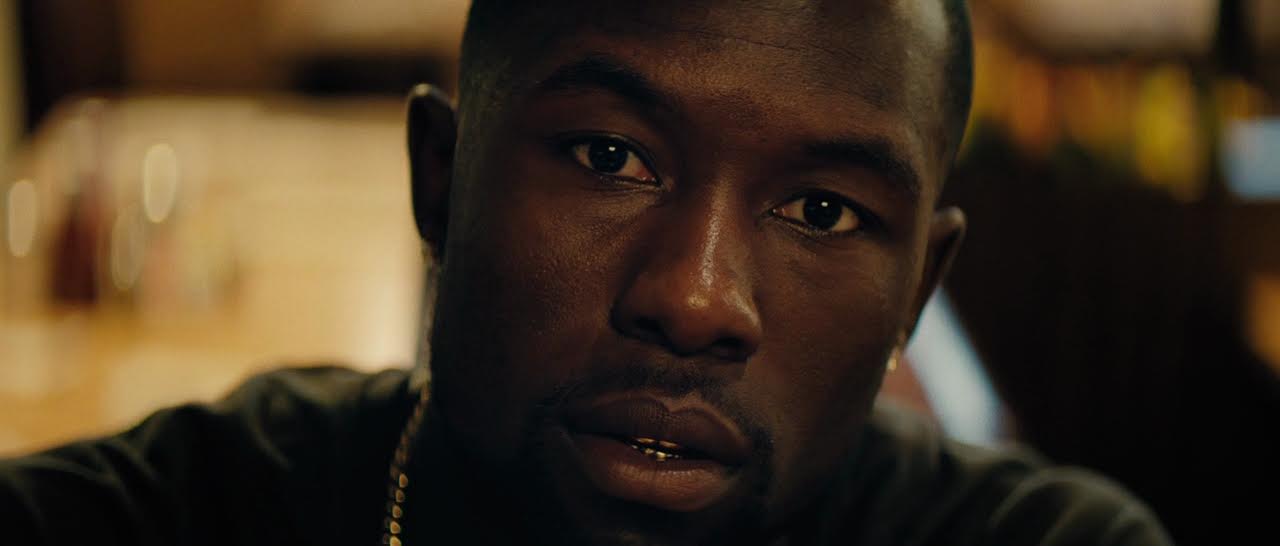
Scene: Kevin and Black at the Diner
We consider Trevante Rhodes’s Black carefully throughout the last act of Barry Jenkins’ Moonlight, searching for traces of the younger versions of his character. That we don’t find many is not surprising considering how we’ve seen this child get battered and abused by life. Chiron doesn’t grow from segment to segment so much as he transforms as survival demands. Moonlight’s second movement ends on such a violent act of self-annihilation, we should be surprised to spot any remnant of the adolescent in Black when he walks into Kevin’s diner a decade later.
And yet despite the intimidating presence Black developed as a barrier against the world, the aspect that unmistakably connects him with his teenage self, and to Little before that, is his fragility. All his outward defenses - the bulked up physique, the sullen manner - hang on him like an ill-fitting suit of armor. When he is in the presence of Andre Holland’s Kevin it looks like a stiff breeze would blow him over...
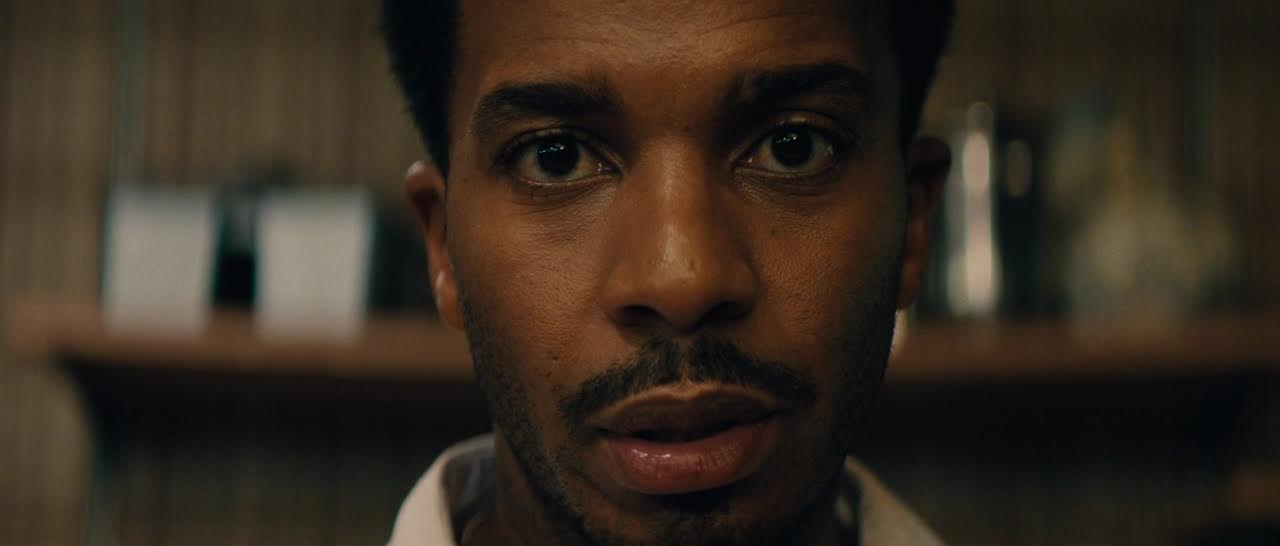
I’ve read criticism that it strains believability that Ashton Sanders’ skinny, bullied Chyron transforms into the imposing Trevante Rhodes. Besides being factually off-base (of course he could and likely would make such a metamorphosis to make it through Juvenile Hall) such complaints miss the point. If reconciling the ages was easy the viewer wouldn’t have to engage with the negative space between them. And Moonlight’s power lives in those time jumps. The ellipses between Moonlight's segments force us to ponder how a single act of kindness or violence can ripple and expand through the decades. And how those influences produced this lonely man sitting anxiously in the diner.
The adage says taking away strengthens what is left behind. Moonlight pares down to such a degree you would swear you could see the air molecules shift between Black and Kevin as each casual statement nudges the conversation’s temperature just so. In this heightened atmosphere Barbara Lewis's “Hello Stranger” drifting out of a jukebox becomes something more than background music. I’m reminded of Amadeus when Salieri describes a piece of music as containing “such longing, such unfulfillable longing.” Writers fall back on words like chemistry to describe scenes like this, but somehow that feels inadequate to the delicate intensity Jenkins and his actors summon here. Witchcraft is more like it.
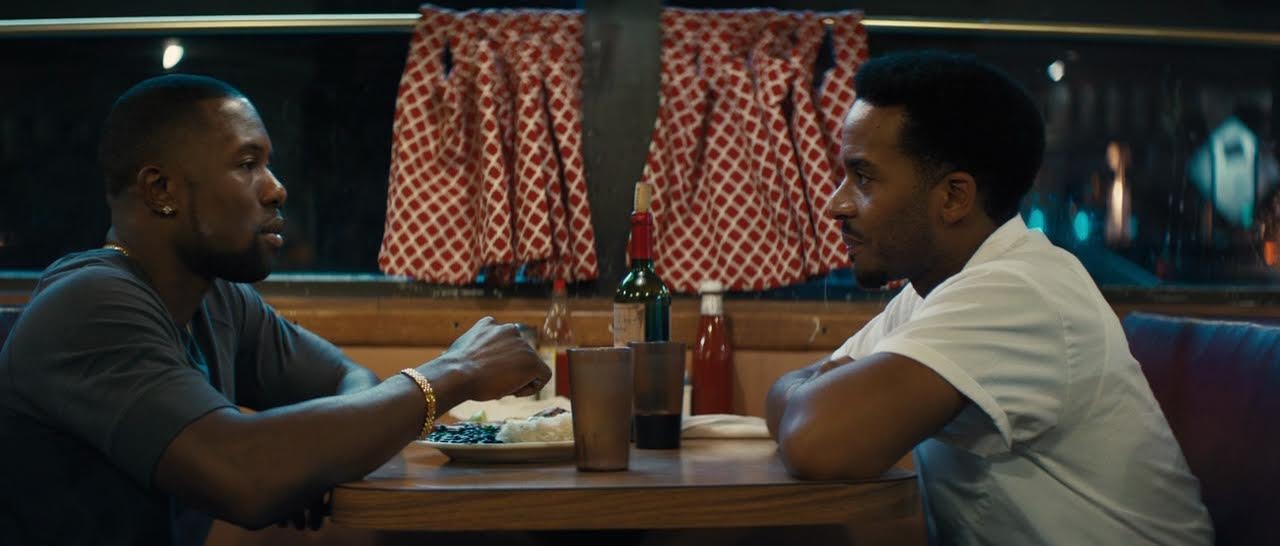
Throughout Moonlight, Jenkins catches the characters in portrait shots, the actors looking directly into the camera in moments that seem to expand time. It happens here when Kevin realizes who is standing in his diner. In life, there are the moments that you forget almost as they are happening, and then there are the moments that imprint on you, that you carry with you as long as you live. These portrait shots feel like watching a moment cross the boundary from the first category to the second.
Black’s hunger is so intense it drowns out the other business that might otherwise clutter a scene like this. There are no emotional monologues, no desperate declarations of love. You might expect Kevin’s youthful betrayal of Chiron to be the scene's focus but it is waved off with a few words. Jenkins and the actors access a much deeper need. When you’re next to the person who represents the one romantic interlude you’ve ever had, and to your excitement you find that spark still exists, well, next to that every other feeling shrinks to nothing, doesn’t it?
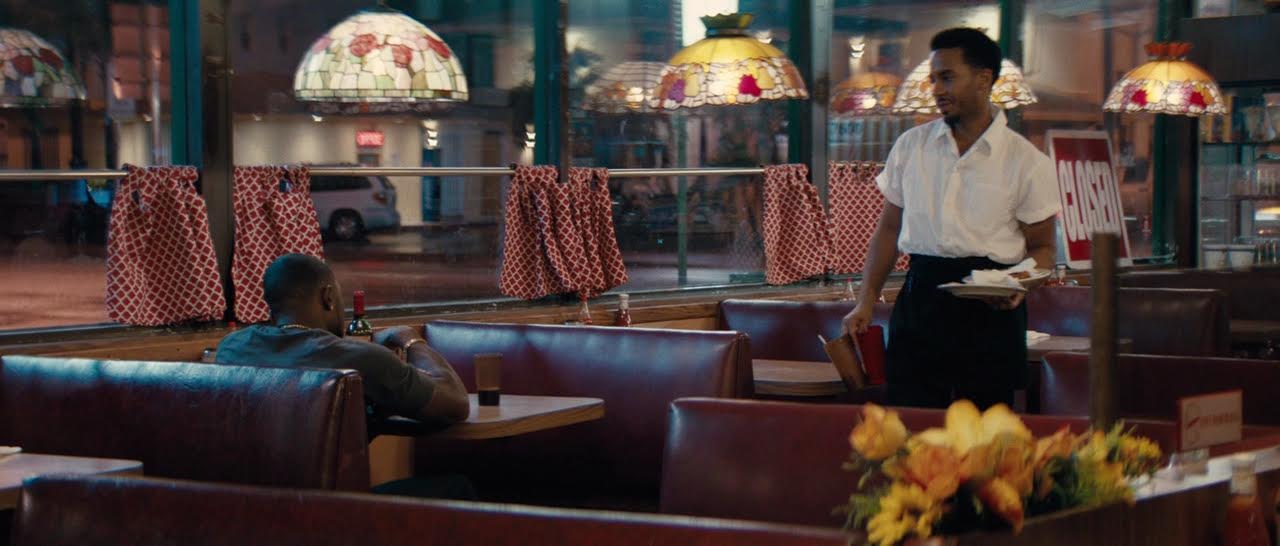
Scratch the intoxicating atmosphere of the diner scene and you find rock solid screenwriting that forces its protagonist to a character-defining choice. It’s all about the repeated shots of the door. Jenkins is careful to have a nice bright bell direct our attention back to it throughout the scene. Everything builds to one question: Will Black flee or will he put his heart on the line?
We would understand if Black’s days of taking emotional risks were behind him. In both earlier segments a miserable and isolated Chiron finds a connection and both times that connection is betrayed. He finds a father figure in Juan only to find Juan supplying the drugs which are poisoning his mother’s soul. Later, miraculously, he finds physical intimacy with Kevin only to have Kevin join his persecutors. As the diner conversation continues, we sense Black eyeing the exit.
I suppose it would have been satisfying in a beautifully sad way if Kevin returned to the table to find Black gone. The film certainly would have earned such a moment. Jenkins is a student of Wong Kar Wai and knows the power of leaving a love story unrequited. The fact that Black stays moves me like few things in film.
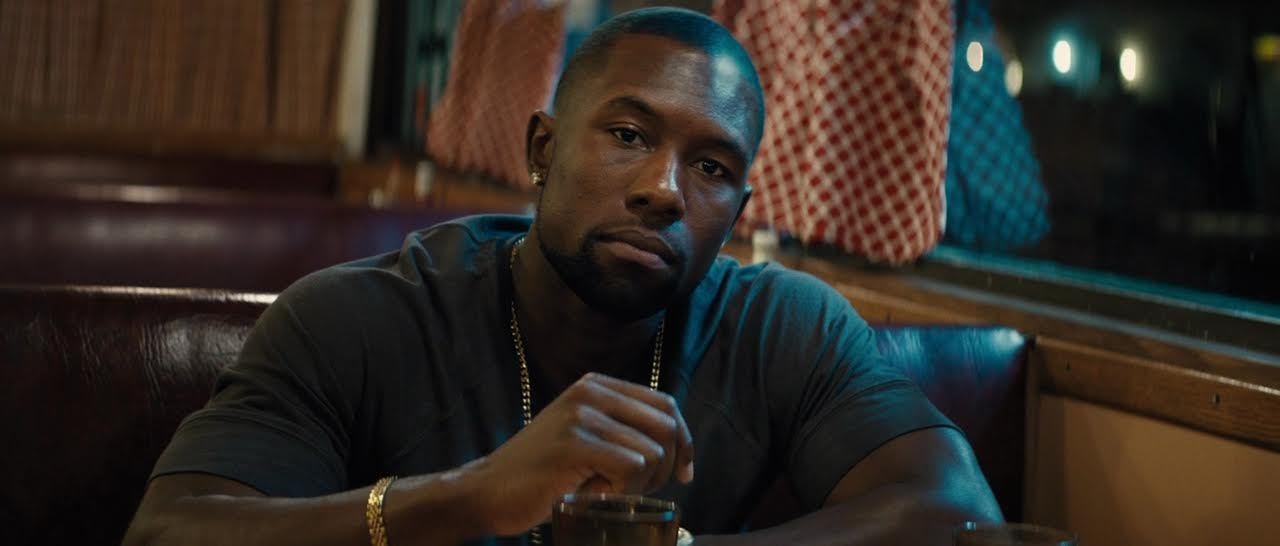
Moonlight is currently streaming on Netflix.
Follow Michael on Twitter and Letterboxd. More episodes of The New Classics.